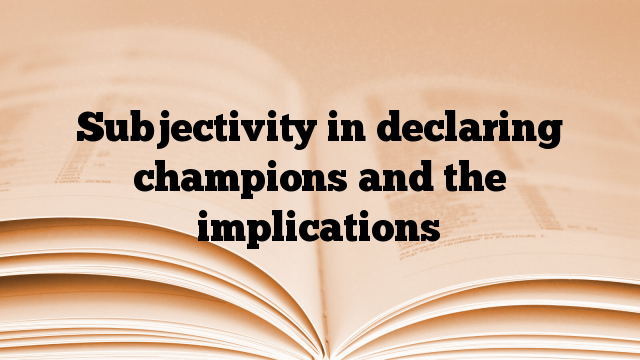Sunday, August 21, 2022.
Last night, in Saudi Arabia’s port city of Jeddah, Oleksandr Usyk defeated Anthony Joshua again in their heavyweight title fight. The surprising thing is that it was by split decision:
One judge scored it 115-113 for Joshua. Another judge had it 115-113 to Usyk.
The third judge scored it 116-112 for Usyk.
The questions are:
- Was the judge who scored it for Anthony Joshua watching a different fight?
-
What would have happened if there were two (or 3) of such judges who seemed to have watched a different fight (or seemed to have come with their verdict already made up)?
-
How often does this happen?
-
How does the Boxing world try to prevent this?
This does not happen only in Boxing. It happens in almost all spheres of life where selection is subjective. Depending on the judge(s) the best person may not be declared the winner.
When people realise that becoming the best may not be based on merit but on ‘favours’ from a judge or judges, they may try to influence or be in the good books of these judges instead of being the best they can be. This can lead to bribery in all forms, boot licking etc to please those who are given the power to judge/reward.
I do not know how this can be avoided in boxing, but in other areas, more objective criteria can be used. Until then, the whole world will continue to sit on tenterhooks waiting for judges’ decisions even in a clearly one-sided fight.
PS: Football moved from tossing a coin (to determine a winner) to penalty kicks.
Penalty kicks has its own challenges but is more objective than tossing a coin.

